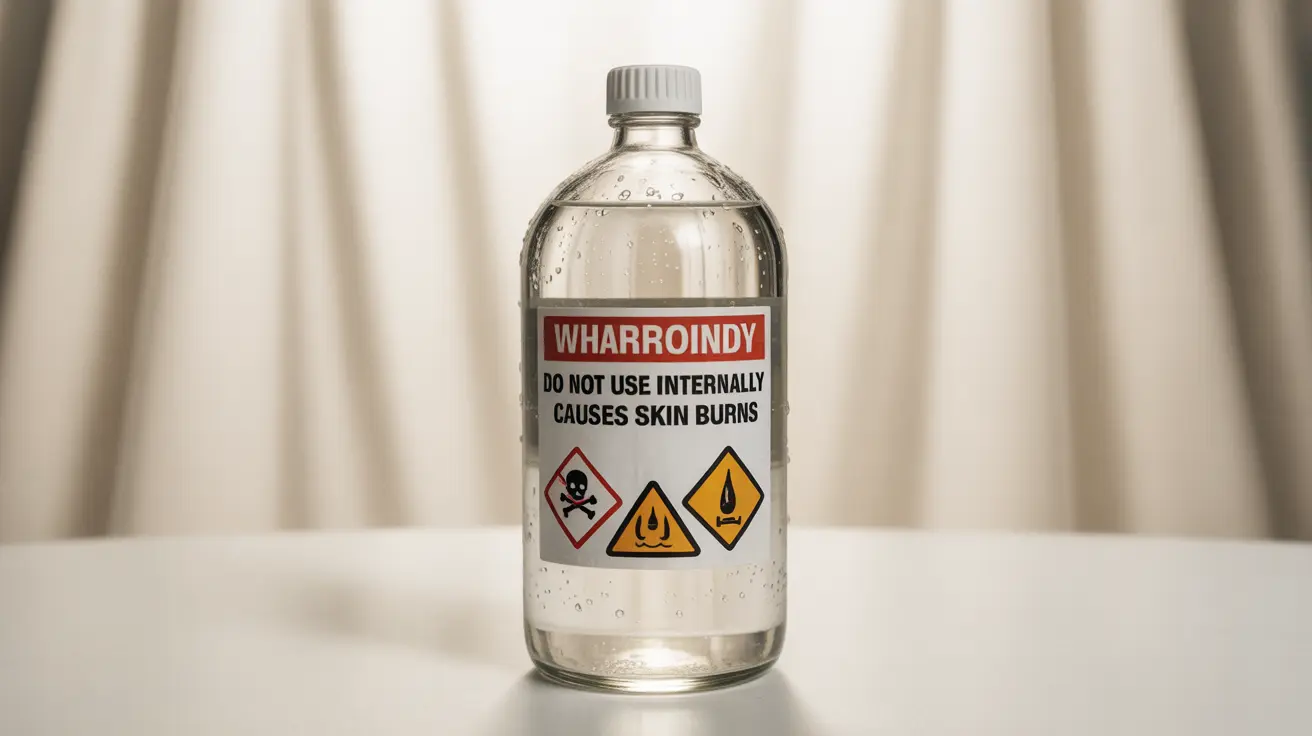If you're exploring treatment options for bacterial vaginosis (BV), you may have heard about using hydrogen peroxide as a potential remedy. While some people consider this option, it's crucial to understand both the risks and proper medical guidance before attempting any home treatments for vaginal infections.
This comprehensive guide examines the facts about using hydrogen peroxide for BV, including safety considerations, potential risks, and medically recommended alternatives. We'll help you make an informed decision about your vaginal health while prioritizing safety and effectiveness.
Understanding Bacterial Vaginosis and Hydrogen Peroxide
Bacterial vaginosis occurs when there's an imbalance in the vagina's natural bacterial ecosystem. While hydrogen peroxide naturally exists in small amounts in a healthy vagina, introducing additional peroxide requires careful consideration.
The vaginal environment maintains a delicate pH balance that helps protect against infections. Any treatment, including hydrogen peroxide, can potentially disrupt this balance and affect vaginal health.
Medical Safety Considerations
Before considering hydrogen peroxide application for BV, it's essential to understand several key safety factors:
- Never use full-strength hydrogen peroxide
- Avoid internal douching
- Consider potential tissue irritation
- Recognize signs of adverse reactions
- Consult healthcare providers before treatment
Proper Application Methods and Precautions
If a healthcare provider approves hydrogen peroxide use, they may recommend specific dilution ratios and application methods. However, it's crucial to note that this is not a standard medical treatment, and safer alternatives exist.
Important Safety Guidelines
When using any vaginal treatment, including hydrogen peroxide:
- Always wash hands thoroughly before application
- Use only sterile products and applicators
- Stop immediately if irritation occurs
- Monitor for unusual symptoms
- Follow healthcare provider instructions exactly
Risks and Potential Complications
Using hydrogen peroxide for BV carries several significant risks:
- Disruption of natural vaginal flora
- Chemical burns or irritation
- Increased infection susceptibility
- Worsening of BV symptoms
- Delayed proper medical treatment
Medically Recommended Alternatives
Healthcare providers typically recommend these proven treatments for BV:
- Prescription antibiotics (oral or vaginal)
- Professional-grade vaginal probiotics
- pH-balanced vaginal treatments
- Lifestyle modifications
- Regular medical monitoring
Frequently Asked Questions
How should hydrogen peroxide be applied safely for bacterial vaginosis treatment at home?
While home application of hydrogen peroxide isn't recommended as a primary treatment, if approved by a healthcare provider, it should only be used in a heavily diluted form with precise medical guidance. Never attempt internal douching or use full-strength hydrogen peroxide.
What are the risks and side effects of using hydrogen peroxide douching for bacterial vaginosis?
Risks include chemical burns, disruption of healthy vaginal bacteria, increased infection risk, tissue irritation, and potential worsening of BV symptoms. Douching with any substance, including hydrogen peroxide, can harm vaginal health.
Is hydrogen peroxide an effective alternative to antibiotics for treating bacterial vaginosis?
No, hydrogen peroxide is not considered an effective alternative to antibiotics. Prescription antibiotics remain the gold standard for treating BV, as they're clinically proven to be both safe and effective when used as directed.
Can hydrogen peroxide douching disrupt vaginal bacteria and worsen bacterial vaginosis?
Yes, hydrogen peroxide douching can significantly disrupt the vaginal microbiome, potentially worsening BV by killing both harmful and beneficial bacteria. This disruption can lead to recurring infections and other complications.
What are the recommended medical treatments and safer alternatives to hydrogen peroxide for bacterial vaginosis?
Medical professionals recommend prescription antibiotics like metronidazole or clindamycin, along with probiotics specifically designed for vaginal health. These treatments are proven effective and safer than hydrogen peroxide applications.
Always consult with a healthcare provider for proper diagnosis and treatment of bacterial vaginosis. They can provide safe, effective solutions tailored to your specific situation.




